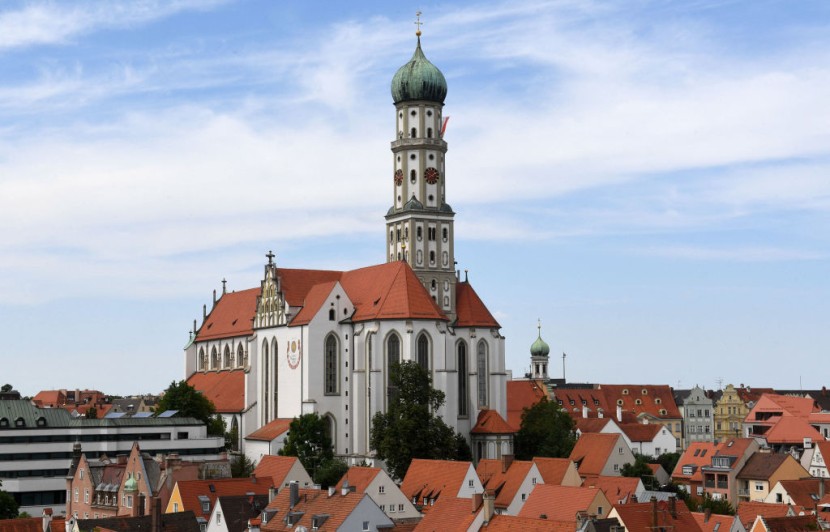The southern Bavarian city of Augsburg was historically known as the birthplace of Pope Francis's favorite devotion to the Virgin Mary under the title "Mary, Undoer of Knots." It is also the place where the Augsburg Confession - the article of faith professed by several princes within the Catholic Holy Roman Empire who embraced the Protestant Reformation of Martin Luther - was published.
Almost 500 years later, the German Bishops' Conference (DBK), the collegiate body of German Catholic bishops, would be convening in Augsburg once more to deliberate the proposal of creating a Synodal Council, a permanent body of bishops and laity to govern the Catholic Church in Germany, as part of its Synodal Way project.
The Vatican has since explicitly forbidden the creation of such a body, and Pope Francis himself criticized the concept.
The question now is this: Will history repeat itself?

Augsburg Meeting Significant for the Catholic Church in Germany
In an analysis article by the National Catholic Register, the DBK would be meeting in Augsburg from Feb. 19 to 21 for their annual spring plenary assembly, and one of the crucial agendas to be discussed is the Synodal Council and whether or not they would take the next step towards the establishment of such.
In order to do so, the bishops would need to approve the statutes of a "Synodal Committee" that currently lays the groundwork for the prohibited council. The committee already held its first meeting in November last year, with a majority of German bishops participating.
Meanwhile, the lay lobby of the Synodal Way called the "Central Committee for German Catholics" (ZdK) already approved the statutes on Nov. 25.
If the DBK would endorse the committee, it would effectively be an act of defiance against Rome and the pope, which in turn could lead to an outright schism.
But if the German bishops blocked the lay lobby's measure, or at least had a significant number of bishops opposing it, the Synodal Way could be considered dead on the water, indicating that the Vatican's censures are effective.
The DBK said that the assembly would "address further considerations on the Synodal Path of the Church in Germany"- a vague phrase being widely interpreted as referring to the possible approval of the Synodal Committee's statutes, the Register explained.
While the statutes have long been expected, the DBK has not yet confirmed that voting would take place. However, the assembly's precise agenda - and whether or not a vote would be cast - would only be revealed in a press conference with the DBK's president, Limburg Bishop Georg Bätzing, on the afternoon of the assembly.
Read Also : Vatican Synod Ends 2023 Plenary Session; Proposals on Hot-Button Topics Absent from Final Document
Vatican Sees 'Synodal Committee' a Problem
Of all the problematic resolutions advanced by the Synodal Way, the Synodal Council has been the Vatican's chief concern.
At least five German bishops wrote to Rome in January to express their concern about the council's formation, with three high-ranking Vatican officials responding to the bishops saying that the proposed Synodal Council would undermine the episcopal authority "of teaching and of governing" by placing itself "above the authority of the German bishops' conference."
The letter, approved by Francis in its specifics, underscored that no German body had the capacity to create such a council.
The pontiff himself personally criticized the Synodal Way's concept of an oversight committee in a November letter penned to four female lay delegates of the technical working group creating the concept who have since resigned their positions in protest. In the letter, Francis said that what the German bishops were doing was a threat to church unity.
Not all German bishops agreed with the Synodal Committee, as at least four bishops broke ranks from their episcopal colleagues and previously blocked financing it with the German bishops' shared fund.
Bishop Stefan Oster of Passau said that his decision and that of at least three fellow bishops was vindicated by Francis's letter.
"When I read the letter with this explicitness, the Synodal Committee ... from the Pope's point of view is on forbidden territory," Oster wrote in early December.
One of the bishops to watch out for, the Register reckoned, was Augsburg Bishop Bertram Meier, who was seen as the "man in the middle" for his alleged ambiguity.
He voted against many of the Synodal Way's most thorny resolutions, but he also emphasized the legitimacy of the process and even harshly criticized its detractors, like Oster, Cardinal Rainer Woelki of Cologne, Bishop Gregor Hanke of Eichstätt, and Bishop Rudolf Voderholzer of Regensburg.
But aside from the four ordinary - or sitting - bishops, several auxiliary bishops have also said that they opposed adopting the Synodal Committee, such as Cologne's Bishop Dominikus Schwaderlapp and Augsburg's Bishop Florian Wörner.
Whatever happens in Augsburg, it would likely be a reform to the Vatican's cultural approach to Germany, perhaps by doubling down in its stance by using excommunication aside from written or spoken warnings.








